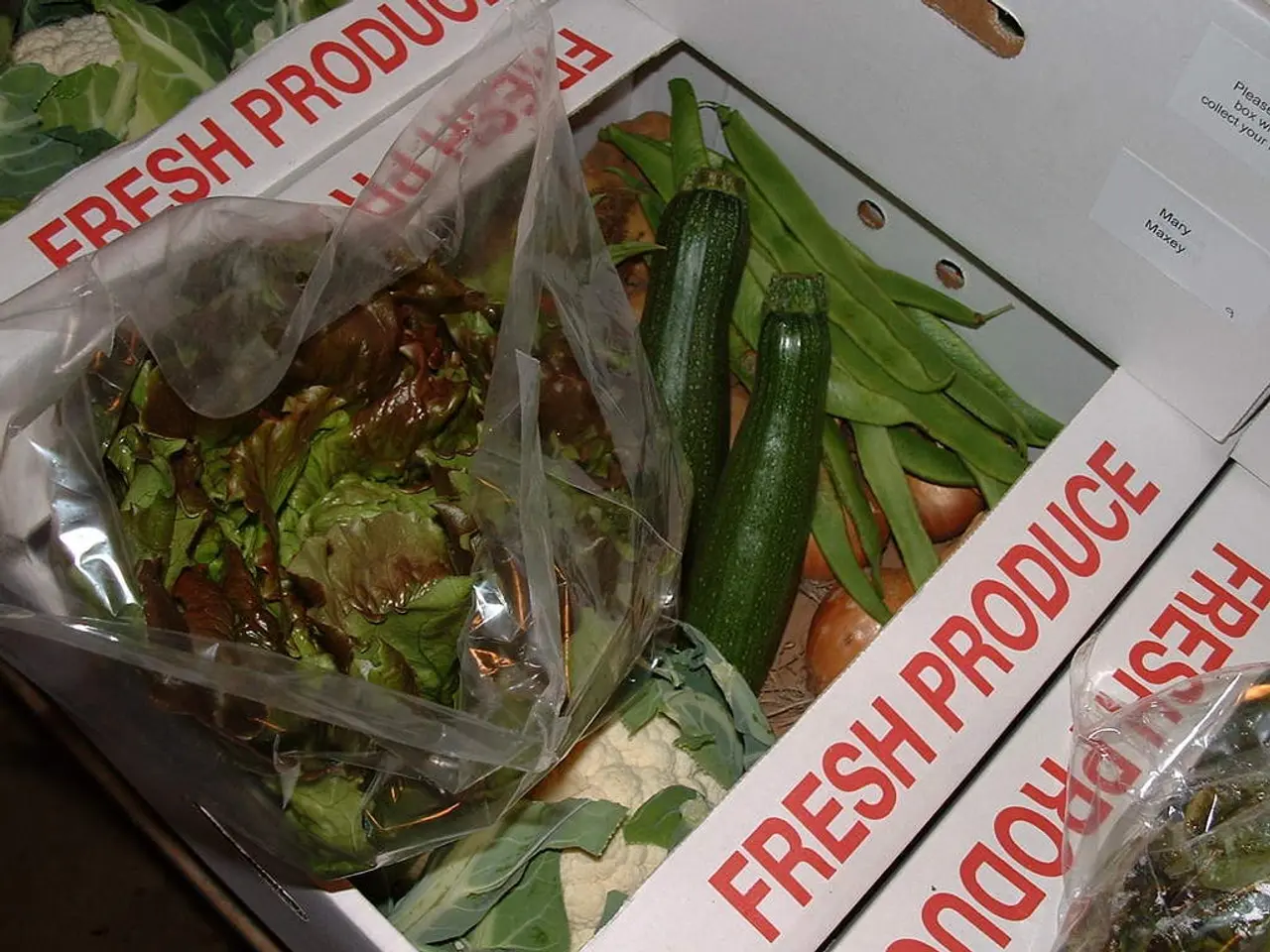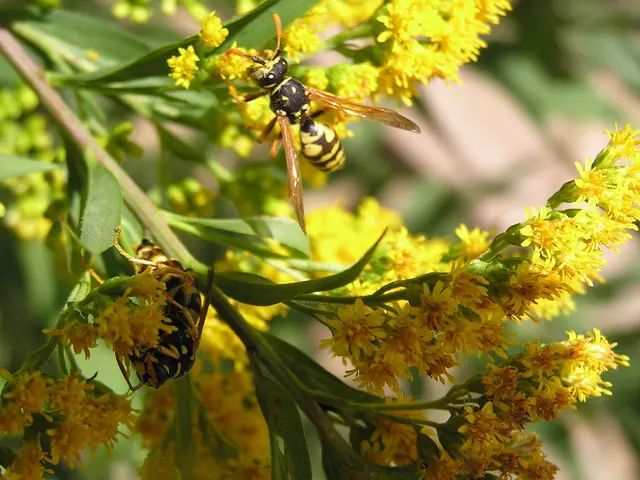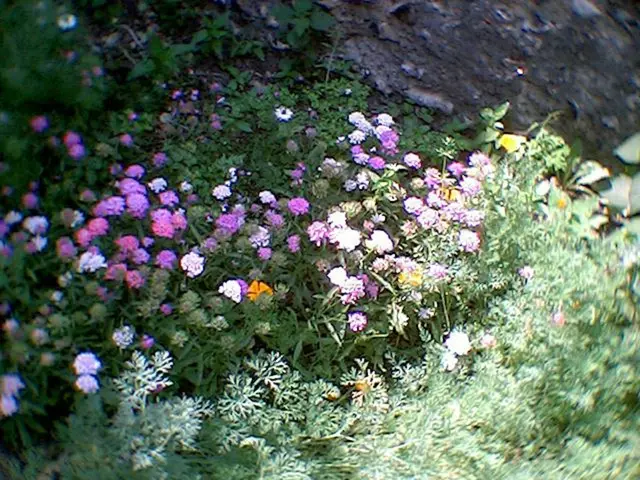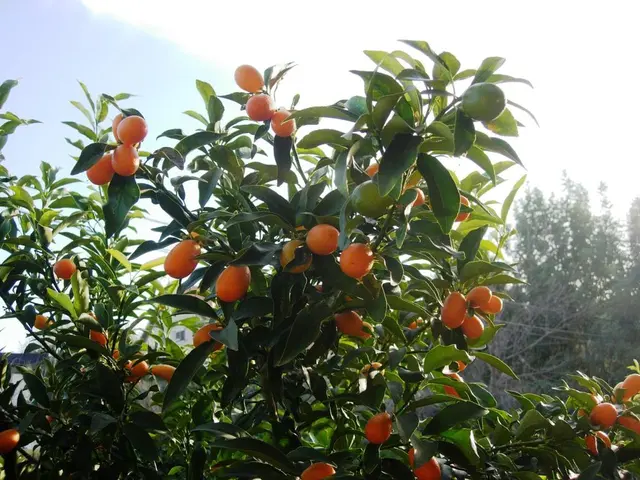Sunflowers Play Selective Partner: Their Preferred Soil and Unwanted Companions Revealed
Planting a row of sunflowers in your garden adds a unique, sunny touch to your crops and offers more than just visual appeal. Apart from their large, yellow flowers, these tall stalks provide several benefits to your garden. Not only do they attract bees and other pollinators, but the University of Virginia has also found that sunflower roots can help remove toxic metals from the soil [1].
However, not all plants get along with sunflowers, so it's essential to select the right companions for your sunflowers. I've spent years figuring out what to grow alongside my sunflowers, and I've consulted expert sites to gather more information about what works well with sunflowers and what should be avoided [2].
To make the most of planting sunflowers, find friends that complement them well, such as vegetables, herbs, or other flowers. Here are some top choices for sunflower allies:
- Alliums: Onions, garlic, chives, leeks, and other alliums have a pungent odor that helps repel pests and provides a perfect scent for sunflowers, which attract beneficial insects [2]. Since their roots occupy different levels of the soil, they won't compete with each other for nutrients, making them an ideal companion for sunflowers.
- Basil: This herb thrives when grown in partial shade, and sunflowers are the perfect tall friends to provide that protection from the hot afternoon sun [2]. Basil's strong scent helps repel some pests, while its flowers attract pollinators. Plant tomatoes or peppers with sunflowers and basil for an excellent companion grouping.
- Crimson clover: This annual groundcover or cover crop is excellent for fixing nitrogen, making it more readily available for sunflowers [3]. Its spreading foliage also prevents weed growth and attracts pollinators and other beneficial insects, making it a great complementary companion for sunflowers.
- Corn: Surprisingly, corn and sunflowers make great companions. They don't compete for sunlight or nutrients, and some even claim that sunflowers can improve the flavor and yield of corn [2].
- Cucumbers: Last year, one of my sunflowers accidentally became a climbing pole for some cucumbers that didn't have a tall enough trellis. By planting sunflowers as cucumber supports, you won't have to worry about pounding in any stakes. Just give the sunflowers a couple of inches' head start.
- Lettuce: Plant lettuce as an edible ground cover under sunflowers. Its broad leaves help suppress weeds, prevent evaporation, and provide enough shade to help keep lettuce from bolting in the summer heat.
- Marigolds: Marigolds are a fantastic addition to most gardens as they repel pests while attracting bees. Combining them with sunflowers creates a beautiful flower combo that will brighten your garden.
- Peppers: Peppers benefit from the predatory insects that sunflowers attract, making them great companions. A sunflower and marigold border would look lovely next to a pepper patch, and the peppers would look lovely as well, with all the pest protection.
- Pumpkins and Winter Squash: Vining pumpkins and winter squash act as living mulch for sunflowers, conserving moisture in the soil. Sunflowers attract pollinators essential for fruit production.
- Tomatoes: Similar to peppers, tomatoes benefit from the predatory insects that sunflowers attract. In addition, their growth may even be enhanced by companion plants associated with sunflowers [2].
- Zucchini and Summer Squash: Like their winter squash cousins, summer squash plants need pollinators to set fruit. Sunflowers, of course, attract these essential insects. Since summer squash plants don't vine, their large leaves do an excellent job preventing weeds and conserving moisture.
Avoid planting fennel or hyssop near sunflowers, as they don't grow well with these tall, light-loving plants. Additionally, potatoes should not be planted near sunflowers, as sunflowers have allelopathic properties that can inhibit their germination and growth [4][5].
All in all, planting sunflowers offers a multitude of benefits that extend beyond their vibrant appearance. By carefully selecting complimentary plants, sunflowers can become even more valuable to your garden.
References
[1] University of Virginia (n.d.). The Use of Sunflowers to Clean Up Soil Contamination. Retrieved from https://www.sunriseenviro.com/sunflowers/environmental-benefits/[2] Manickam, S. (2019). Choose the Perfect Companion Plants for Sunflowers: What to Plant and What Not to Plant with Sunflowers in the Garden. Retrieved from https://www.digthedirt.co/2019/06/choose-the-perfect-companion-plants-for-sunflowers/[3] Michigan State University. (2012, September 17). Cover Crop Mixture for Home Gardens: Crimson Clover in the Mix. Retrieved from https://msue.anr.msu.edu/news/cover_crop_mixture_for_home_gardens_crimson_clover_in_the_mix[4] Block, M. (n.d.). Worst Companion Plants for Sunflowers. Retrieved from https://www.thespruce.com/companion-plants-for-sunflowers-3025007[5] North Carolina State University Cooperative Extension. (2017, February 8). Companion Cropping and Accompaniment. Retrieved from https://www.ces.ncsu.edu/depts/hort/consumer/garden/vegetable/companion.htm
Author
- Serena Manickam is a freelance editor and writer who loves tending a sustainable market garden in rural Virginia. She holds a BA in Environmental Science and passionately shares her knowledge through her writing. Follow her gardening adventures at Fairydiddle Farm.
- Decorating your home-and-garden lifestyle with a row of sunflowers not only brings a unique, sunny touch to your crops but also offers beneficial soil cleansing properties [1].
- To optimize the benefits of sunflowers, choose suitable companions such as alliums, basil, crimson clover, corn, cucumbers, lettuce, marigolds, peppers, pumpkins and winter squash, tomatoes, and zucchini and summer squash [2].
- These plant companions complement sunflowers, providing repelling pests, attracting pollinators, fixing nitrogen, improving soil, acting as living mulch, and preventing weeds [2].
- Avoid planting fennel, hyssop, and potatoes near sunflowers, as they may not grow well or inhibit the growth of sunflowers [4][5].
- By carefully selecting compatible plants, sunflowers can become even more valuable to your garden, offering a wide range of benefits that extend beyond their vibrant appearance [6].
- Embrace the organic lifestyle by choosing seeds to grow sunflowers, vegetables, herbs, and other plants that will harmoniously coexist in your garden [7].
- Continue your gardening journey by learning more about home-and-garden topics and applying sustainable practices to create a thriving ecosystem in your garden.








